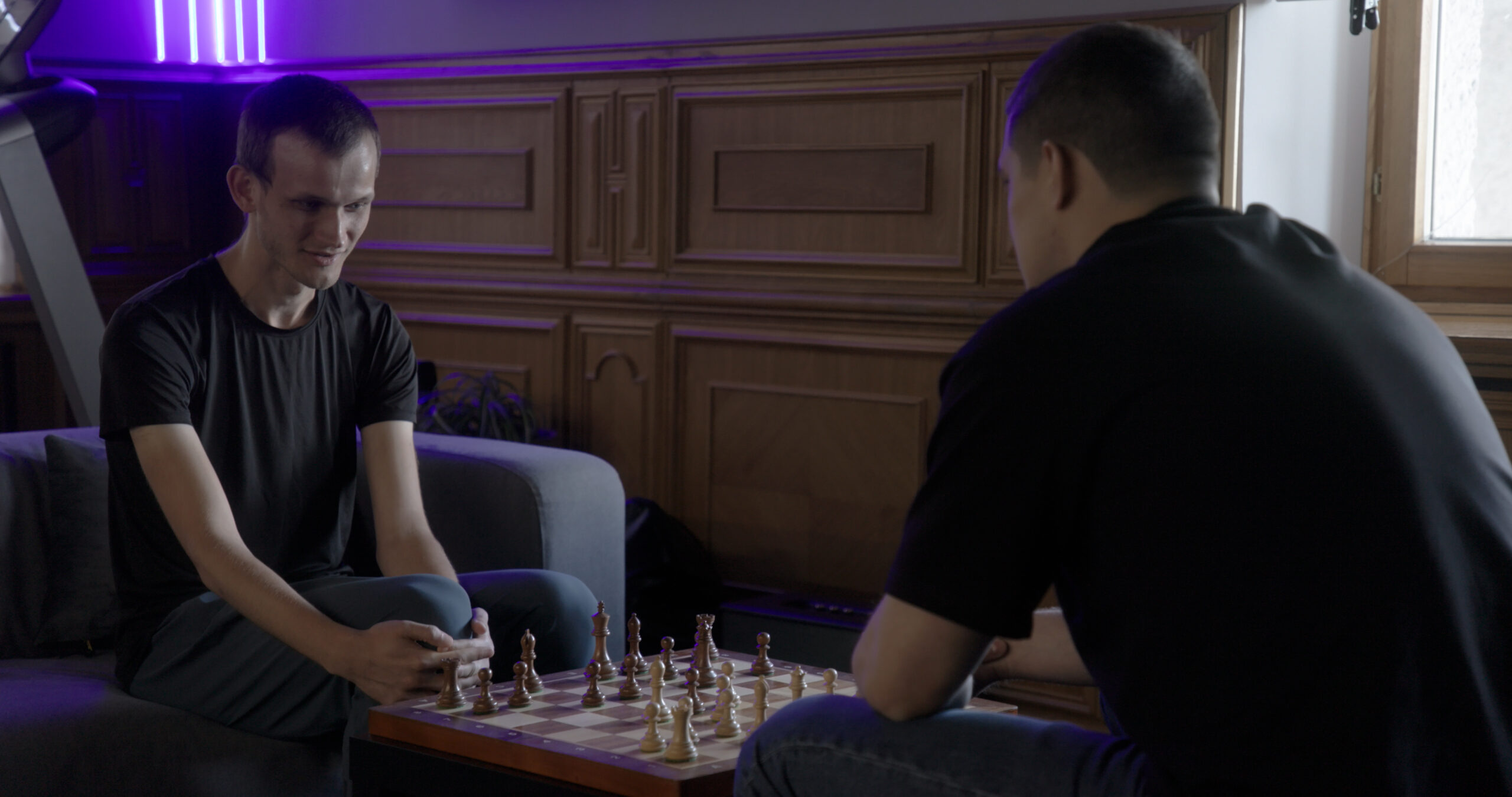
31-year-old Vitalik Buterin is one of crypto’s most important figures. As the founder of Ethereum, he pioneered the idea that crypto and blockchains could serve larger purposes beyond money. But Buterin also sought to diminish his own role within the ecosystem, and encouraged his community to think much bigger than their own short-term gains.
A new documentary, Vitalik: An Ethereum Story, tells his story, following him around the world as he confronts difficult technical problems and evangelizes a strange new technology that attempts to reorient the world around its decentralized value system. ”In our minds, tech is never neutral: it’s a reflection of the values and blind spots of its creators,” says co-director Chris Temple. “As we head into conversations around AI and crypto, Vitalik models a new kind of leadership compared to the tech leaders that we’re used to—the Elon Musks, Mark Zuckerbergs and Jeff Bezos’s of the world—that are that are structured within these centralized organizations and decisionmaking apparatuses.”
Advertisement
Temple and co-director Zach Ingrasci filmed Buterin across two years, and much of their footage didn’t make it into the 86-minute film. That includes one scene in Kyiv, Ukraine, in which Buterin plays chess with Mykhailo Fedorov, Ukraine’s Minister of Digital Transformation. The scene, published exclusively by TIME, shows a fascinating peek into Buterin’s ideological leanings, and his acute desire for crypto to have real-world use cases beyond speculation.
Read More: The Man Behind Ethereum Is Worried About Crypto’s Future
Buterin traveled to Ukraine in September 2022, six months after Russia’s invasion. While Buterin was born in Russia, he staunchly opposed the invasion and personally donated millions to Ukrainian relief efforts. Thanks in part to his vocal support, almost $100 million in crypto poured into Ukraine in the first couple weeks of the invasion, offering fast relief and easy, direct transactions.
The deleted scene shows Fedorov and Buterin talking over a game of chess. In the early days of the invasion, Fedorov tells him, the country’s national bank had banned international transactions, so the Ukrainian government instead used crypto to receive funding and buy weapons and military supplies. “All of the first drones, lots of ammunition, arrived thanks to crypto,” Fedorov tells him. “We saved the lives of hundreds—maybe thousands of our military. So it was highly important.”
Buterin responds: “We love Ukraine… For the blockchain community itself, this was the first opportunity to make a real difference with blockchain and cryptocurrency.”
Later, when Fedorov points out that Ukrainians continue to live in the war-torn country, Buterin adds: “I think continuing real life means, even if I’m a good person, to show Putin a middle finger.”
Ingrasci says the clip didn’t make it into the final cut because the moment it depicts is referenced in other ways. “But I think it’s the most important moment for Vitalik in our journey with him, because it’s this real world use case of how crypto can really make the world a better place,” he says.
Vitalik: An Ethereum Story is available on VOD on April 15. TIME Studios served as one of the film’s production companies.
Andrew R. Chow’s book about crypto and Sam Bankman-Fried, Cryptomania, was published in August.
